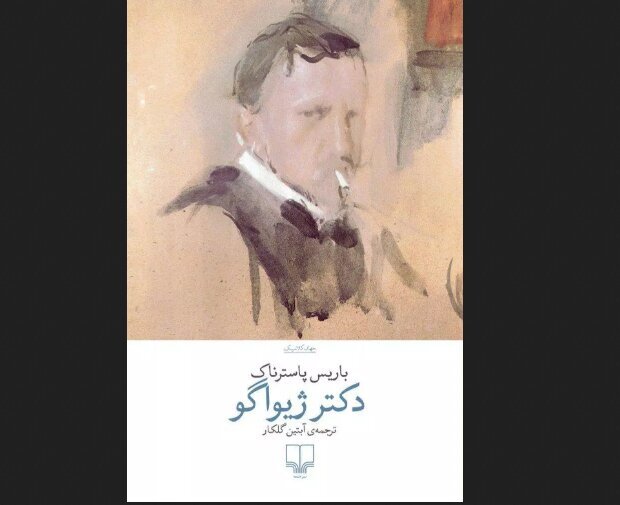“Doctor Zhivago” to debut in new Persian translation

TEHRAN- A new Persian translation of Russian poet and novelist Boris Pasternak’s "Doctor Zhivago" by Iranian translator Abtin Golkar is set to hit the book market soon.
"The reason I began translating 'Doctor Zhivago' is that the older translations, which were made over 50 years ago using intermediary languages, were not of good quality and the novel needed a fresh translation," ISNA quoted Golkar as saying on Tuesday.
Golkar emphasized the importance of this work, stating, "This novel is a book for which its author won the Nobel Prize; often, writers receive this prestigious award for their entire body of work, but in Pasternak's case, it was specifically for this novel."
He highlighted that "Doctor Zhivago" has been widely read in various countries for many years and has garnered a dedicated following. "This book, much like classic literature, transcends time and space. It has not been confined to Russia or the 20th century.”
“This work has managed to find its audience everywhere and at all times, demonstrating the existence of deep human concepts and roots that resonate with readers of any era or nationality," he added.
Published by Cheshmeh Publications in Tehran, the book is expected to be available in Iranian bookstores next week.
"Doctor Zhivago" is set against the backdrop of the tumultuous events of early 20th-century Russia, including World War I and the Russian Revolution. The story follows Yuri Zhivago, a sensitive and introspective physician and poet, as he navigates the personal and societal upheaval caused by these historical changes.
Yuri, born to a poor family, becomes an orphan at a young age and is raised by a kind guardian. He falls in love with Tonya Gromeko, the daughter of an affluent family that he becomes close to during his medical studies. Despite his love for Tonya, Yuri develops a profound connection with Lara Antipova, a passionate woman entangled in a turbulent relationship with the revolutionary Victor Komarovsky. Their love is intense yet complex, marked by the constraints of time and circumstance.
As the revolution unfolds, Yuri is conscripted into the army and experiences the horrors of war. He and Lara's paths cross several times amidst the chaos, and their love story weaves through the narrative, representing hope and beauty amidst suffering. The political upheaval affects Yuri's life drastically; he struggles with the loss of his family, the challenges of serving in a revolutionary government, and his evolving feelings for both Tonya and Lara.
The novel is rich with themes of love, loss, and the quest for personal identity amidst the tide of history. It explores the conflicts between duty and desire, as Yuri grapples with his responsibilities to his wife, Tonya, and his longing for Lara. The characters become emblematic of the struggles faced by many Russians during this period; they navigate the uncertainty of their futures while pursuing their passions and ideals.
"Doctor Zhivago" delves into the intersection of personal lives and historical events, illustrating how individual fates are intertwined with larger societal transformations. Pasternak’s poetic prose captures the beauty and tragedy of human experiences, making it a poignant exploration of love, grief, and resilience in a time of profound turmoil.
"Doctor Zhivago" features autobiographical elements, with many characters inspired by people close to Boris Pasternak, including his mistress, Olga Ivinskaya, who inspired the character of Lara. Pasternak’s earlier works, such as "Spektorsky" and "The Last Summer," reflect his experiences during the Revolution and Civil War, laying the groundwork for "Doctor Zhivago."
Despite containing sections written in the 1910s and 1920s, the novel was not completed until 1955. It was submitted for publication to the literary journal Novy Mir in 1956 but was rejected due to its implicit rejection of socialist realism and critiques of Stalinism.
After smuggling copies to the West, Italian publisher Giangiacomo Feltrinelli published a translation in November 1957, drawing significant global interest despite Soviet censorship and political backlash.
Pasternak was awarded the Nobel Prize for Literature in 1958, but faced severe repercussions, threatening his safety and that of Ivinskaya. Under pressure, he renounced the prize. After his death in 1960, he received a modest funeral that drew thousands. Finally, in the late 1980s, "Doctor Zhivago" was published without censorship, solidifying its place in Russian literature. Today, it is part of the high school curriculum in Russia.
SAB/
Leave a Comment